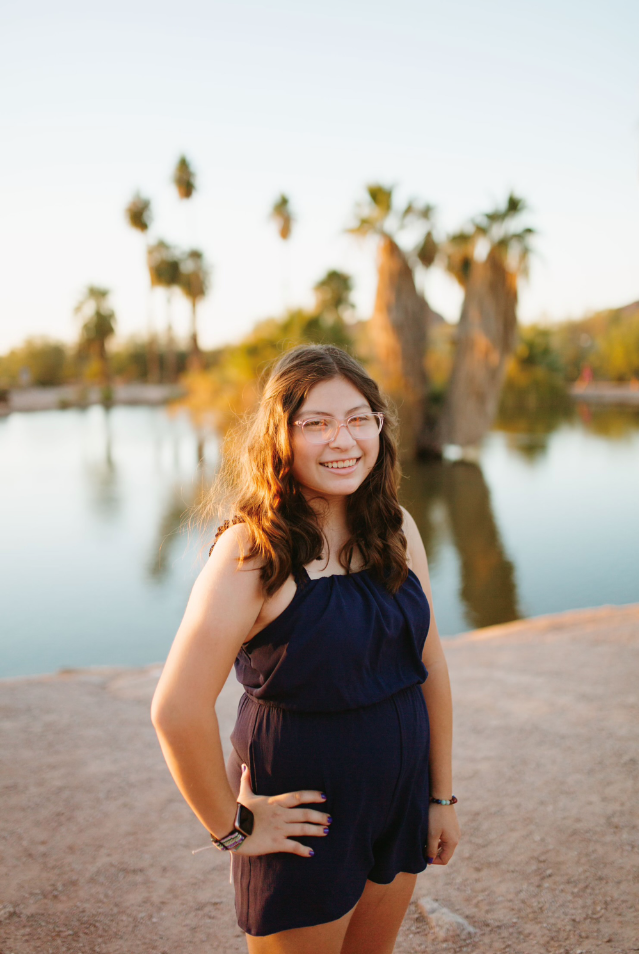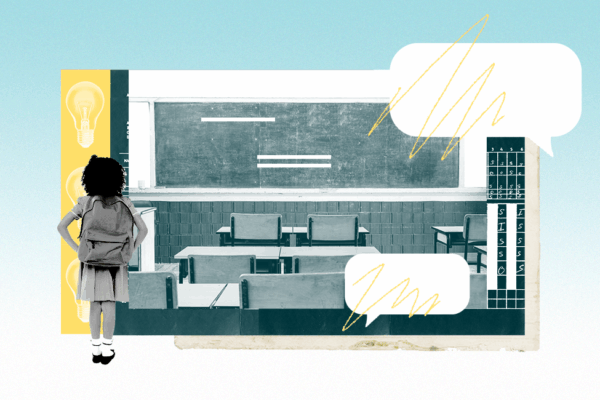Jennifer

Jennifer grew up in Nampa, where she briefly attended a charter school before transferring to public schools in the Vallivue School District. As Jennifer shared, since an early age her parents were very involved and supportive in her education.
Jennifer’s native language is English, and both of her parents spoke English to her at home. But when Jennifer started to struggle with multiple subjects at Desert Springs Elementary, she was placed in classes for students whose second language is English. Jennifer described how this experience impacted her identity, as well as her education. Jennifer also shared other ways in which she felt isolated to talk about issues of race and diversity, especially as one of the few Latina students in advanced classes in high school.
Jennifer is now a student at Idaho State University, where she is majoring in Political Science and Government.
*The following interview has been edited for clarity.
Did you ever feel like you received different treatment in school because of your Latina identity?
Both my parents speak English, and they were both born here in the U.S. Growing up, I was taught mainly English, and didn’t know much Spanish, besides when it was spoken in my household, which was very rare. In elementary school, my teachers saw me really struggling a lot with English and other subjects. English is my first language, so maybe I just needed some extra help, but they threw me into ESL, the English as a Second Language class. There, it was a lot of more basic English which I knew at that point.
I think it was mainly because I’m Latina, and they thought, “She doesn’t know English, so it must be because she was taught Spanish.” But I was never really taught Spanish, it’s always been English first.
Were you offered any other resources before being placed in an ESL class?
I was not. In the first grade I went to a charter school, I think it was Liberty Charter School. There, my parents received a lot of my test grades, and they weren’t the best. So, my parents talked with my teacher, and said, “It looks like [our daughter] is struggling. What can we do?” And the teacher said, “No, she’s fine, she’s got it.”
At that point my parents placed me in tutoring on the side, along with my [school] work, to hopefully get my grades to be a little bit better. But once first grade ended, my teacher told them that I was failing, and that I needed to redo the year. So, I moved schools and was placed into the second grade at [Desert Springs Elementary’s ESL program]. I did more tutoring and summer classes, as well.
But, after that I always felt like I was very behind compared to my other classmates when it came to reading or [other subjects]. I spoke to someone at Idaho State University, and they said that I was behind on a few of my basic subjects that I’m supposed to learn in first grade, second grade, and a lot of the elementary [grade levels]. It looked like I was not where most of my classmates are now. It was possible that because I went through ESL—because those are very primal times to learn—I just missed out on a lot of information that I should have been in class for.
Jennifer shared that she remained in ESL classes until about fourth or fifth grade.
Are there other ways you felt that you had different access to academic resources?
Once I started middle school, I joined the Advancement Via Individual Determination (AVID) program. That provided me with a lot of resources to help me get ready for college. To this day, I’m very grateful for AVID, because a lot of my classmates would make fun of the class, saying “no one needs that class.” But I think without it, I wouldn’t be in college today. A lot of the information, I didn’t know—my parents didn't know. There were a lot of things about college that people assumed we knew, so I’m glad I had that program to help me figure that out.
But I know a lot of friends who didn’t have that class. A lot of the people who did make fun of the class knew a lot about the resources, and they knew how to do it, because their parents had gone through [college]. I feel like they just didn’t understand, and my situation was very different as a first-generation student.
I know a lot of the times, I felt like an outsider, especially in a lot of electives like choir and theater. There was just not a lot of representation. And there was a good majority of Hispanics at my school, and yet a lot of them weren’t involved . . . and I felt like there was just not much of a push towards [involvement] or help towards them. Many of my friends said there was not a push towards dual credit, or even AP classes. A lot of the time I just felt like an outsider besides that AVID class. Especially when it came to taking Advance Placement (AP) classes, I felt like I was the only Hispanic in the room.
In your high school classes did you feel like you could talk about issues of racism or diversity?
I think it depended on which class. In my AVID class I felt a lot more comfortable talking about certain issues because the teacher was pretty open. It was just a very open class. But my AP Government class was not. It just felt like a very closed class. So, I would just try not to talk in that class as much as possible. I felt like if I was to speak up about something, I would be attacked by the majority of the students in the class. The teacher would talk about the vaccine as a [hoax] and was very right sided. There were instances where you could tell what political side he was on, and of course a lot of the students would agree with him, or they would go talk to him after class about it, and so they felt like they could speak their voice in that sense.
I think it was mainly the teacher always putting labels on women or Hispanics. We talked about the different parties, and he would say Hispanics were obviously more liberal and he would just put them in these boxes.
I know there was an instance where another teacher had gotten in trouble for saying the n-slur, and nothing was really done when a student complained. So, it just felt like nothing was going to be done.
What are some supports you wish more Latinx students had?
I wish I saw more programs within [Ridgeview] High School. It was kind of sad, just seeing a lot of Hispanic students, especially my senior year, who I knew had potential, and I knew could go a lot farther in life if they were just given that push or given that resource. A lot of them didn't go to college, and I feel like a lot of them could have if they had just applied themselves a bit more.
I understand why it can be really hard when you don't have representation, or when you don't feel like you’re where you should be, and you're not given the proper resources or help towards that.
Being a first-generation student is difficult. You're not given as many resources. I know a lot of my friends who are mainly white didn't understand how different it was for them having parents who went off to college and knew how to apply and get scholarships. I know my parents did their best to understand. But it's a lot different being a first-generation student . . . I wish others understood that more.
The Education Equity for Latinx Students project started in the fall of 2022 as part of our efforts to expand racial justice work on behalf of Idaho students, beginning with Latinx communities.
READ MORE STORIES AND LEARN ABOUT THE EDUCATION EQUITY FOR LATINX PROJECT


